Home>Garden Essentials>What Is Pumpkin Seed Oil
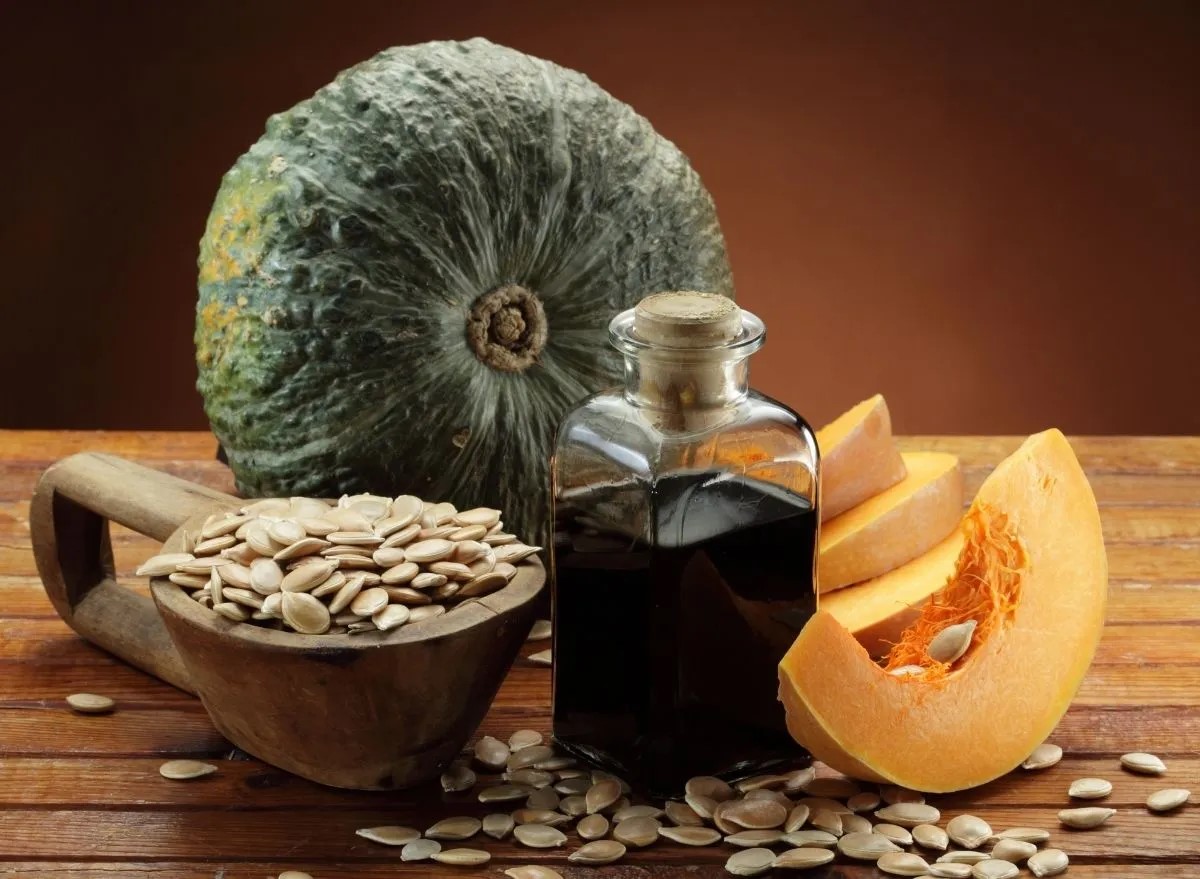

Garden Essentials
What Is Pumpkin Seed Oil
Modified: March 16, 2024
Discover the benefits of pumpkin seed oil for your garden. Boost your plants' growth and health with this natural and nourishing oil.
(Many of the links in this article redirect to a specific reviewed product. Your purchase of these products through affiliate links helps to generate commission for Storables.com, at no extra cost. Learn more)
Introduction
Welcome to the world of pumpkin seed oil, a natural powerhouse packed with numerous health benefits and culinary potential. Derived from the seeds of the pumpkin, this oil has been used for centuries in various cultures for its incredible nutritional value and healing properties.
Pumpkin seed oil is extracted through a cold-pressing process, preserving its natural goodness and ensuring it retains its rich flavor and therapeutic properties. It has gained popularity in recent years due to its impressive nutritional profile and versatile applications, making it a staple in many household pantries.
In this article, we will delve into the history of pumpkin seed oil, explore its nutritional benefits, discuss its various health benefits, culinary uses, and even uncover its skincare and haircare benefits. By the end, you’ll have a comprehensive understanding of the wonders of this remarkable oil.
So, let’s dive in and discover the fascinating world of pumpkin seed oil!
Key Takeaways:
- Pumpkin seed oil, with its rich history and exceptional nutritional profile, offers numerous health benefits, including supporting heart health, improving skin and hair, and enhancing culinary creations.
- Incorporating pumpkin seed oil into your routine can bring a world of delicious flavors to your dishes, promote healthier skin and hair, and provide a range of potential health benefits when used in moderation.
Read more: How To Make Pumpkin Seed Oil
History of Pumpkin Seed Oil
The use of pumpkin seed oil dates back centuries, with its origins traced to Native American tribes who discovered the immense nutritional and medicinal properties of pumpkin seeds. These tribes, particularly those in North and Central America, would consume pumpkin seeds and use the oil for various purposes.
However, it was in Eastern Europe, particularly in Austria and Slovenia, that pumpkin seed oil gained widespread recognition and popularity. The tradition of extracting oil from pumpkin seeds has been specifically cultivated in these regions for over 300 years.
In Austria, pumpkin seed oil, or “Kernöl” as it is known locally, has become a cultural icon and integral part of the culinary heritage. It is extensively used in Austrian cuisine, adding a distinct nutty flavor and vibrant green color to dishes like salads, soups, and sauces. Austrian farmers have mastered the art of producing high-quality pumpkin seed oil, and it is now protected by the European Union’s Protected Designation of Origin (PDO) status.
Slovenia also boasts a rich tradition of producing pumpkin seed oil, known locally as “bucca”. It is considered one of Slovenia’s national treasures and is deeply ingrained in their culinary traditions. Slovenian pumpkin seed oil is renowned for its exceptional quality and is often used as a finishing oil to drizzle over dishes and enhance their overall flavor.
Over time, pumpkin seed oil’s reputation has spread globally, gaining recognition for its unique characteristics and health benefits. Today, it is widely embraced by health-conscious individuals and gourmet chefs alike, offering a flavorsome and nutritious addition to various cuisines around the world.
The popularity of pumpkin seed oil continues to soar as more people discover its incredible versatility and the numerous advantages it brings to their everyday lives. From its humble beginnings in Native American tribes to becoming a beloved ingredient in European and international cuisine, pumpkin seed oil has truly earned its place as a culinary and medicinal treasure.
Nutritional Profile of Pumpkin Seed Oil
Pumpkin seed oil is not only known for its delightful taste and aroma but also for its exceptional nutritional composition. Packed with essential minerals, vitamins, and beneficial fatty acids, it offers a range of health benefits when incorporated into your diet.
One of the key components of pumpkin seed oil is its high content of unsaturated fatty acids, including omega-3 and omega-6 fatty acids. These fatty acids are crucial for maintaining optimal cardiovascular health, reducing inflammation, and supporting brain function.
Pumpkin seed oil is also a rich source of vital minerals like magnesium, potassium, zinc, and iron. Magnesium plays a crucial role in promoting healthy nerve function, supporting muscle relaxation, and maintaining proper bone density. Potassium aids in regulating blood pressure and promoting heart health. Zinc is essential for a strong immune system, while iron is crucial for red blood cell production and preventing iron-deficiency anemia.
Furthermore, pumpkin seed oil contains a wide array of antioxidants, including vitamin E and carotenoids, which help protect against oxidative stress and cell damage caused by free radicals. These antioxidants also contribute to healthier skin and a stronger immune system.
Additionally, pumpkin seed oil is a rich source of phytosterols, which are plant compounds that have been shown to reduce cholesterol levels and improve heart health. Phytosterols can help lower LDL (bad) cholesterol, thereby reducing the risk of cardiovascular diseases.
In terms of calories, pumpkin seed oil is relatively high, so it should be consumed in moderation. However, its nutrient density and wealth of health-promoting properties make it a valuable addition to a balanced diet.
When choosing pumpkin seed oil, opt for organic, cold-pressed varieties to ensure the preservation of nutrients and minimize the presence of additives or harmful chemicals.
Overall, the nutritional profile of pumpkin seed oil makes it a valuable asset in promoting overall well-being and providing a range of health benefits when used in moderation as part of a healthy diet.
Health Benefits of Pumpkin Seed Oil
Pumpkin seed oil offers a multitude of health benefits, thanks to its impressive nutritional profile and unique composition of bioactive compounds. Here are some of the key health benefits associated with consuming pumpkin seed oil:
- Heart Health: The high content of phytosterols found in pumpkin seed oil can help lower LDL cholesterol levels, reducing the risk of heart disease. It also contains omega-3 and omega-6 fatty acids, which support cardiovascular health by reducing inflammation and promoting healthy blood pressure levels.
- Prostate Health: Pumpkin seed oil has long been recognized for its potential to promote prostate health. It contains a natural compound called cucurbitacin, which may help inhibit the growth of prostate cells and reduce the risk of conditions like benign prostatic hyperplasia (BPH) and prostate cancer.
- Improved Bladder Function: Consuming pumpkin seed oil may help support bladder health and reduce the symptoms of overactive bladder or urinary incontinence. The oil’s rich zinc content is essential for maintaining a healthy urinary tract and regulating bladder function.
- Enhanced Immune System: Pumpkin seed oil contains antioxidants like vitamin E, which help boost the immune system and protect cells from damage caused by free radicals. These antioxidants also have anti-inflammatory properties, further supporting overall immune health.
- Joint and Bone Health: The combination of minerals found in pumpkin seed oil, including magnesium, zinc, and iron, supports optimal bone health and may help reduce the risk of osteoporosis and age-related bone loss. These minerals also play a crucial role in maintaining healthy joints and preventing conditions like arthritis.
- Regulated Blood Sugar Levels: Pumpkin seed oil has been shown to help regulate blood sugar levels by improving insulin regulation. It may be beneficial for individuals with diabetes or those at risk of developing the disease.
- Improved Digestive Health: The high fiber content in pumpkin seed oil supports healthy digestion and may help prevent constipation. Additionally, the oil’s anti-inflammatory properties can soothe the digestive tract and promote overall gut health.
It is important to note that while pumpkin seed oil offers numerous health benefits, it should be consumed in moderation as part of a balanced diet. As with any dietary changes or supplements, it is advisable to consult with a healthcare professional, especially if you have any underlying health conditions or are taking medications.
By incorporating pumpkin seed oil into your diet, you can harness its nutritional power and enjoy the potential health benefits it has to offer.
Culinary Uses of Pumpkin Seed Oil
Pumpkin seed oil is not only cherished for its health benefits but also valued for its unique and delectable flavor. Its nutty, rich taste adds depth and complexity to various dishes and makes it a versatile ingredient in the culinary world. Here are some creative ways to incorporate pumpkin seed oil into your culinary endeavors:
- Dressings and Sauces: One of the most popular uses of pumpkin seed oil is in dressings and sauces. Its vibrant green color and distinct flavor can enhance the taste of salads, marinades, and pesto sauces. Drizzle it over fresh greens, roasted vegetables, or grilled meats to add a delicious twist to your dishes.
- Soups and Creamy Dishes: Pumpkin seed oil can lend a rich and creamy texture to soups and creamy dishes. Stir it into butternut squash soup, pumpkin bisque, or lentil stew to add depth and earthiness. It can also be added to creamy pasta sauces, risottos, or mashed potatoes for a unique touch.
- Baked Goods: Embrace the unique flavor of pumpkin seed oil by incorporating it into your baking. Use it in bread recipes, muffins, or even cookies to add a subtle nuttiness and a moist texture. It pairs especially well with ingredients like pumpkin, chocolate, and spices like cinnamon and nutmeg.
- Dips and Spreads: Create enticing dips and spreads by combining pumpkin seed oil with ingredients like tahini, garlic, lemon juice, and herbs. It can be used to make flavorful hummus, tangy vinaigrettes for bruschetta, or even as a dip for fresh crusty bread.
- Desserts: Experiment with pumpkin seed oil in desserts to add a unique twist to your sweet treats. It can be used to make nutty-flavored ice creams, drizzled over cheesecakes, or incorporated into chocolate truffles. The possibilities are endless for adding a touch of luxury to your desserts.
When using pumpkin seed oil in your recipes, it’s important to note that its delicate flavor can be easily overpowered. Therefore, it’s best to use it as a finishing oil or add it towards the end of cooking to preserve its unique taste and nutritional properties.
Remember, the quality of pumpkin seed oil can vary, so opt for cold-pressed, extra-virgin oils for the best flavor and nutritional content. Store it in a cool, dark place to maintain freshness and extend its shelf life.
By incorporating pumpkin seed oil into your culinary repertoire, you can unlock a world of delicious flavors and elevate your dishes to new heights. Let your creativity flow and enjoy the unique taste and benefits that this remarkable oil offers.
Pumpkin seed oil is rich in antioxidants and essential fatty acids, making it great for skin and hair health. It can also help support prostate and bladder health in men.
Read more: How To Take Pumpkin Seed Oil For Prostate
Skincare and Haircare Benefits of Pumpkin Seed Oil
Not only is pumpkin seed oil a culinary delight, but it also offers a range of benefits for your skin and hair. Its nutrient-rich composition and unique properties make it a valuable addition to your skincare and haircare routine. Here’s how pumpkin seed oil can enhance the health and appearance of your skin and hair:
Skincare Benefits:
- Moisturizes and Nourishes: Pumpkin seed oil is rich in essential fatty acids that deeply moisturize the skin and help maintain its natural moisture barrier. It penetrates the skin easily, leaving it soft, supple, and hydrated. Regular application can help prevent dryness and improve overall skin texture.
- Anti-Aging Properties: The antioxidants found in pumpkin seed oil, including vitamin E and carotenoids, help fight the signs of aging. They combat free radicals, which can cause premature aging, and promote collagen production, leading to smoother, firmer skin and a reduction in fine lines and wrinkles.
- Improves Skin Tone and Texture: Pumpkin seed oil contains enzymes that gently exfoliate the skin, removing dead skin cells and promoting a more even skin tone and texture. It can help reduce the appearance of blemishes, acne scars, and hyperpigmentation, leaving your skin looking radiant and rejuvenated.
- Soothes Irritation and Inflammation: The anti-inflammatory properties of pumpkin seed oil make it beneficial for soothing skin irritations, including redness, itchiness, and inflammation. It can be particularly helpful for those with sensitive or problematic skin conditions like eczema or psoriasis.
- Promotes Healthy Hair Growth: Pumpkin seed oil is rich in nutrients like zinc, vitamin A, and vitamin E, which are essential for maintaining a healthy scalp and promoting hair growth. Massaging the oil into the scalp can stimulate blood circulation, nourish the hair follicles, and strengthen the hair shaft, resulting in thicker, shinier, and healthier hair.
Haircare Benefits:
- Conditions and Hydrates: Pumpkin seed oil can work wonders for dry, damaged hair. Its moisturizing properties help to hydrate and condition the hair, adding shine and reducing frizz and breakage. Use it as a hair mask or incorporate it into your conditioner to reap the benefits.
- Protects against Environmental Damage: The antioxidants found in pumpkin seed oil protect the hair from environmental damage, such as UV rays and pollution. By forming a protective layer around the hair shaft, it helps prevent damage and keeps the hair healthy and lustrous.
- Soothes Scalp Conditions: Irritated or inflamed scalp conditions like dandruff or scalp acne can be alleviated with the use of pumpkin seed oil. Its anti-inflammatory properties can help reduce redness, itching, and flakiness, providing relief and promoting a healthier scalp.
When using pumpkin seed oil for skincare or haircare, make sure to choose high-quality, pure oils that are cold-pressed and free from additives. Conduct a patch test before applying it to your skin or scalp to ensure you don’t have any sensitivities or allergies.
By incorporating pumpkin seed oil into your skincare and haircare routine, you can harness the natural goodness of this remarkable oil and enjoy the benefits of healthier, more radiant skin and luscious, vibrant hair.
Dosage and Safety Considerations
Pumpkin seed oil is generally considered safe for consumption when used in moderation. However, it’s important to be mindful of the dosage and consider any potential interactions or allergies you may have. Here are some dosage and safety considerations to keep in mind:
- Recommended Dosage: There isn’t a specific recommended dosage for pumpkin seed oil, as it can vary depending on individual needs and health conditions. As a general guideline, it is advisable to consume 1-2 tablespoons (15-30 ml) per day. However, it’s always best to consult with a healthcare professional or a registered dietitian to determine the appropriate dosage for your specific circumstances.
- Allergies: While rare, some individuals may have an allergic reaction to pumpkin seed oil. If you have a known allergy to pumpkin seeds or other seeds/nuts, exercise caution when using pumpkin seed oil for the first time. Perform a patch test on a small area of your skin before consuming it or applying it topically to ensure there are no adverse reactions.
- Interactions: If you are taking any medications or have any underlying health conditions, it’s important to consult with your healthcare provider before incorporating pumpkin seed oil into your routine. Pumpkin seed oil may interact with certain medications, such as anticoagulants or antiplatelet drugs, so it’s essential to seek professional advice to ensure it is safe for you to use.
- Pregnancy and Breastfeeding: While there is no concrete evidence to suggest that pumpkin seed oil is harmful during pregnancy or breastfeeding, it is always advisable to err on the side of caution. If you are pregnant, nursing, or planning to become pregnant, consult your healthcare provider before using pumpkin seed oil to ensure it aligns with your individual circumstances.
- Quality and Storage: To ensure the highest quality and freshness, opt for organic, cold-pressed pumpkin seed oil. Store it in a cool, dark place away from direct sunlight to prevent oxidation and maintain its nutritional properties. Always check the expiration date and discard any oil that has gone rancid or has an off-putting smell.
As with any dietary supplement or lifestyle change, it’s recommended to listen to your body and observe any reactions or sensitivities. If you experience any adverse effects after consuming or using pumpkin seed oil, discontinue use and consult a healthcare professional.
Remember that the information provided here is for educational purposes only and should not substitute personalized medical advice. It’s always best to consult with a healthcare professional or a registered dietitian to address your specific needs and concerns.
By being mindful of dosage, considering potential allergies or interactions, and seeking professional advice when needed, you can enjoy the benefits of pumpkin seed oil safely as part of a healthy lifestyle.
Read more: How Much Pumpkin Seed Oil For Hair Growth
Conclusion
Pumpkin seed oil is truly a remarkable ingredient that offers a wide range of benefits for our health, culinary creations, skincare, and haircare routines. From its ancient roots in Native American tribes to its popularity in European and international cuisines, pumpkin seed oil has captured the attention of food enthusiasts, health-conscious individuals, and beauty enthusiasts alike.
With its rich nutritional profile, including essential fatty acids, minerals, antioxidants, and phytosterols, pumpkin seed oil supports heart health, prostate health, immune function, and more. Its culinary uses are endless, adding a nutty and distinctive flavor to dressings, sauces, soups, baked goods, and desserts. It’s a must-have ingredient for those looking to elevate their dishes and explore new flavors.
Additionally, the skincare and haircare benefits of pumpkin seed oil cannot be ignored. Its moisturizing and nourishing properties promote healthy skin and can help combat the signs of aging, improve skin tone and texture, and soothe skin irritations. When used in haircare routines, it can condition the hair, protect against environmental damage, and promote healthy hair growth.
While pumpkin seed oil is generally safe for consumption and topical use, it’s essential to be mindful of dosage, potential allergies, and interactions with medications or underlying health conditions. Always consult with a healthcare professional before making any significant dietary or lifestyle changes.
Whether you’re a food enthusiast looking to experiment in the kitchen, a beauty enthusiast seeking natural skincare remedies, or someone interested in optimizing your health and well-being, pumpkin seed oil is a versatile and beneficial addition to your routine.
So, embrace the wonders of pumpkin seed oil and discover the endless possibilities it offers. From enhancing your favorite recipes with its delightful flavor to nourishing your skin and hair, this exceptional oil is a true gift from nature.
Start exploring the world of pumpkin seed oil today and unlock its incredible benefits for a healthier, tastier, and more vibrant life.
Frequently Asked Questions about What Is Pumpkin Seed Oil
Was this page helpful?
At Storables.com, we guarantee accurate and reliable information. Our content, validated by Expert Board Contributors, is crafted following stringent Editorial Policies. We're committed to providing you with well-researched, expert-backed insights for all your informational needs.
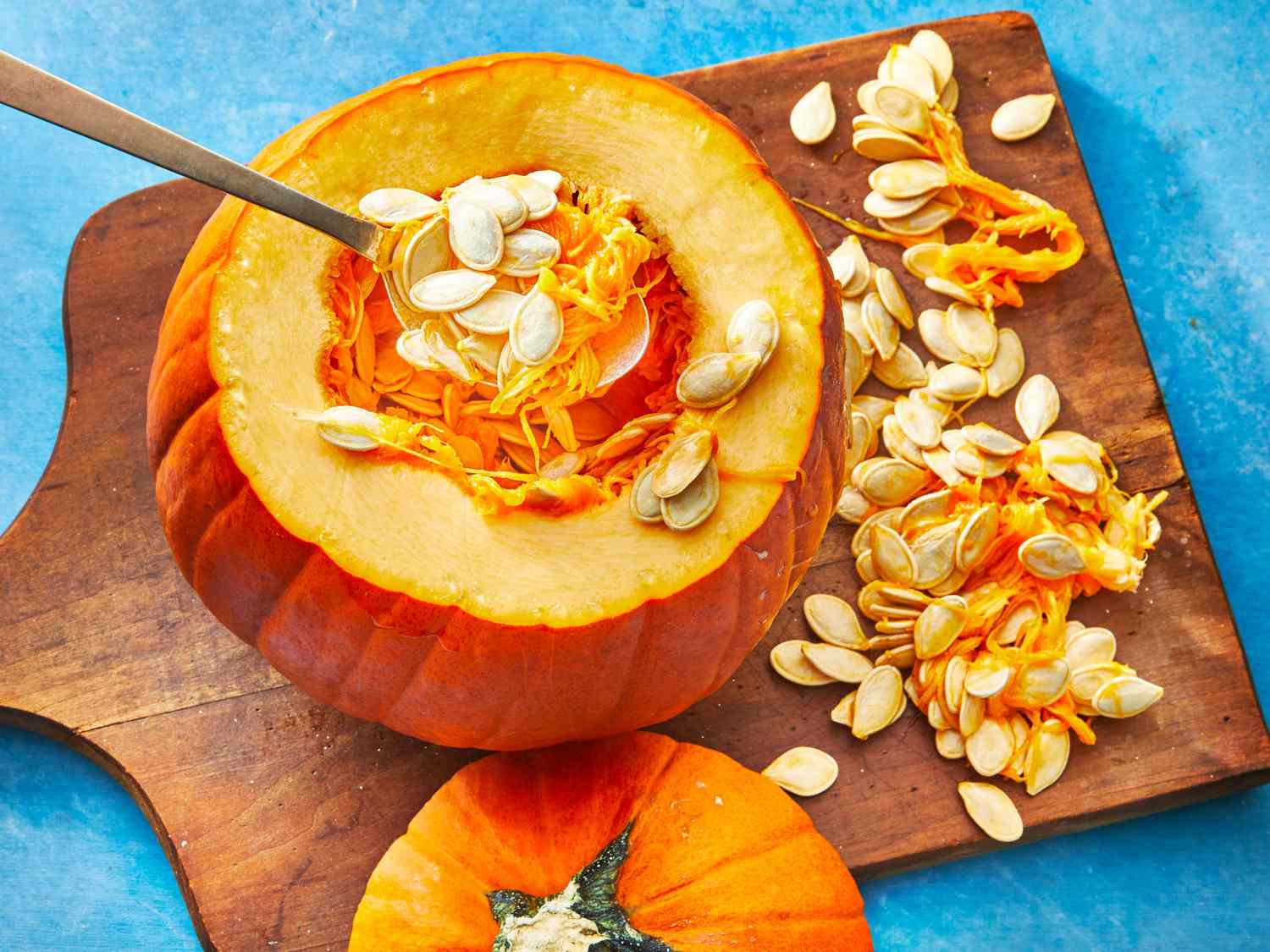
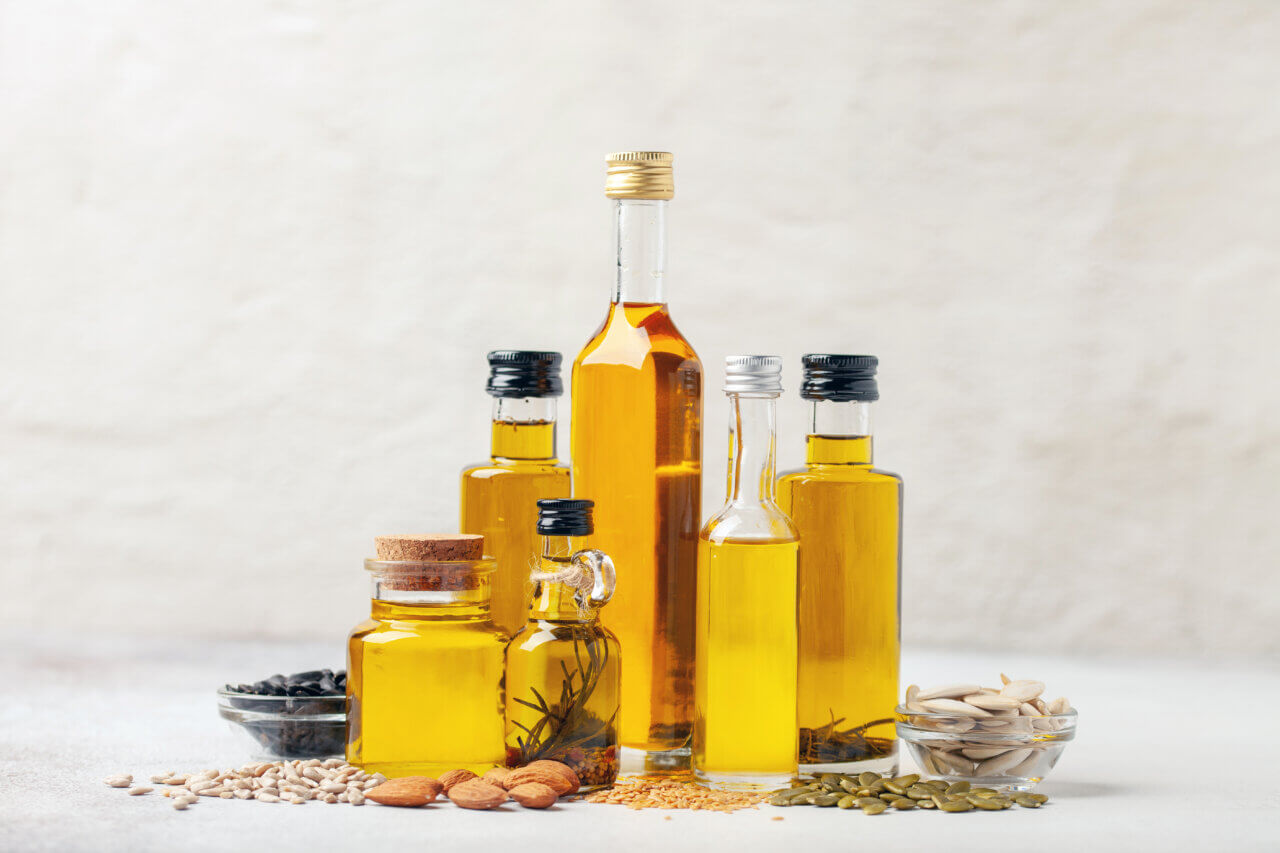

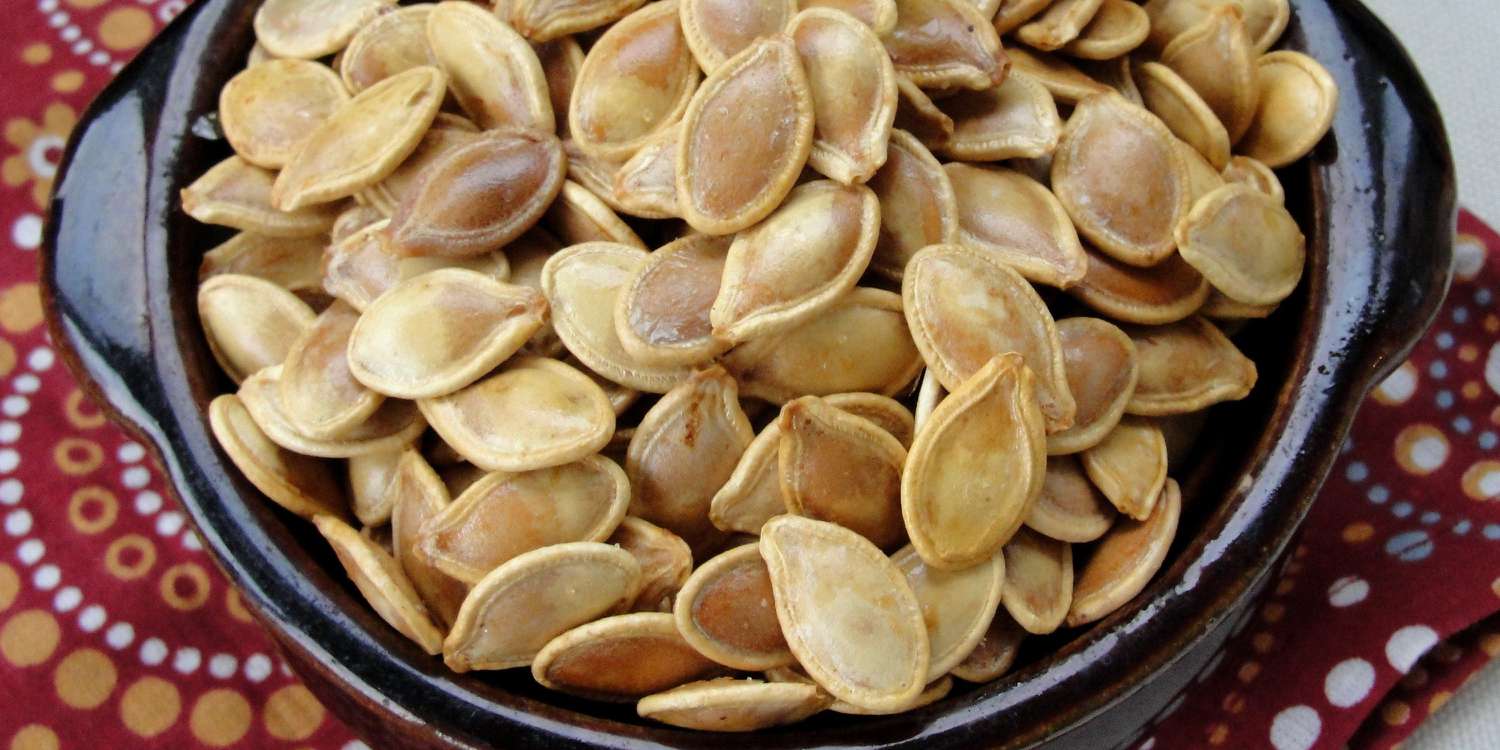
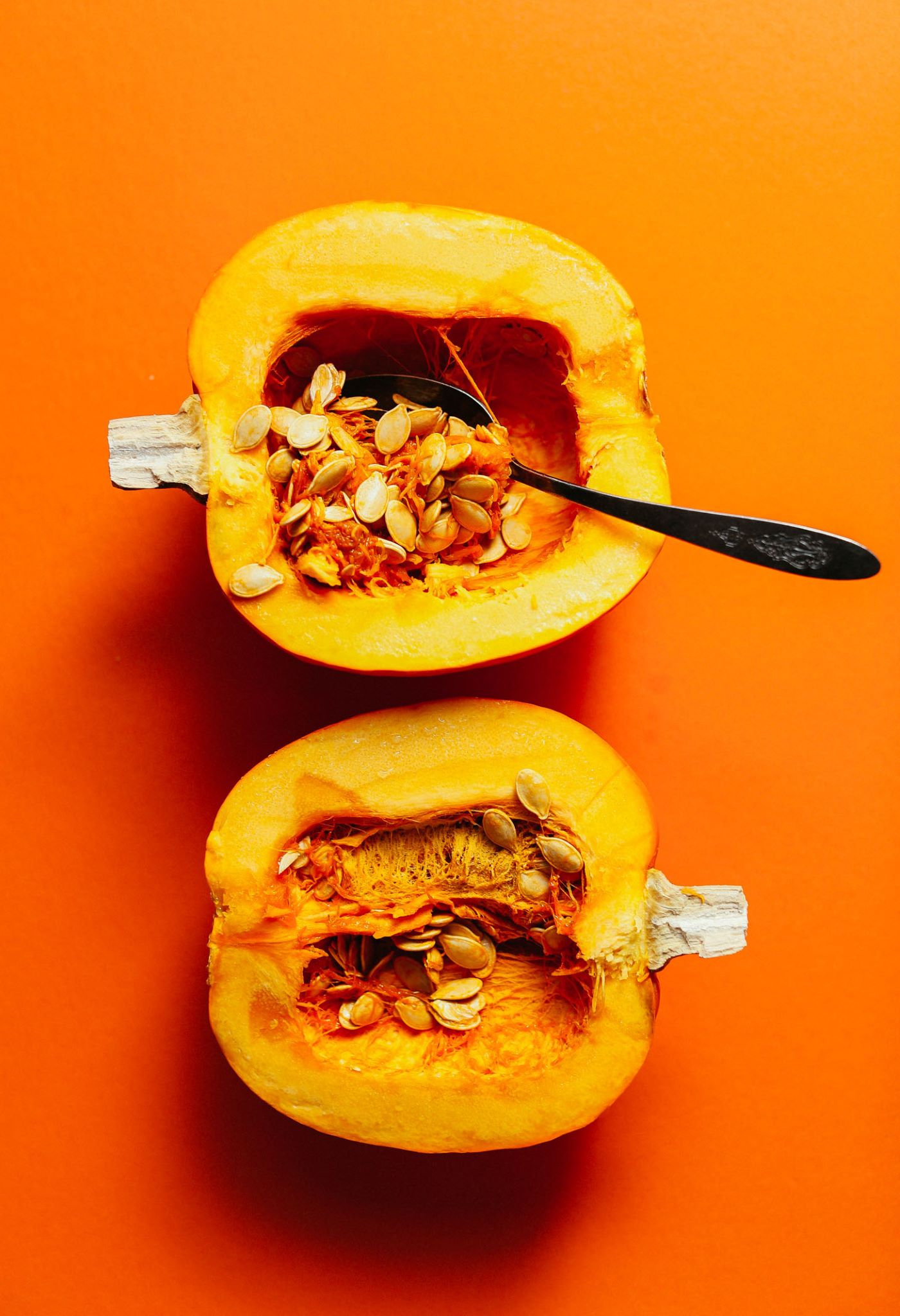
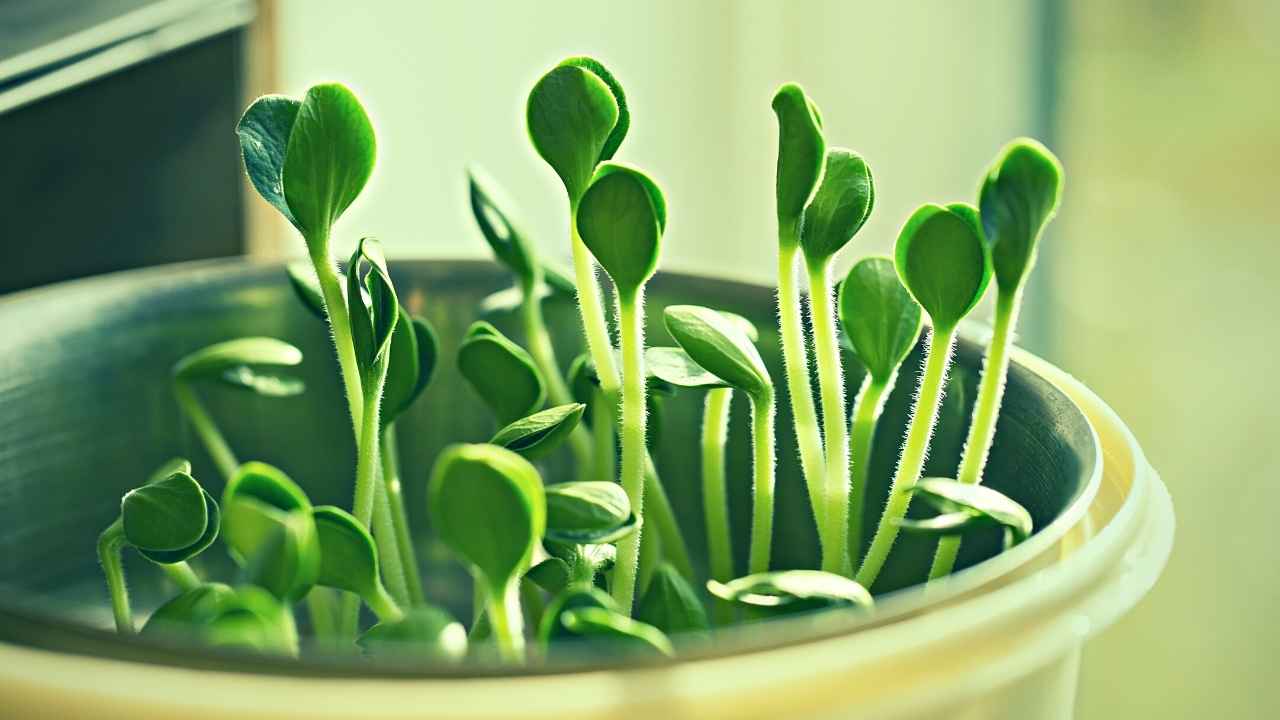
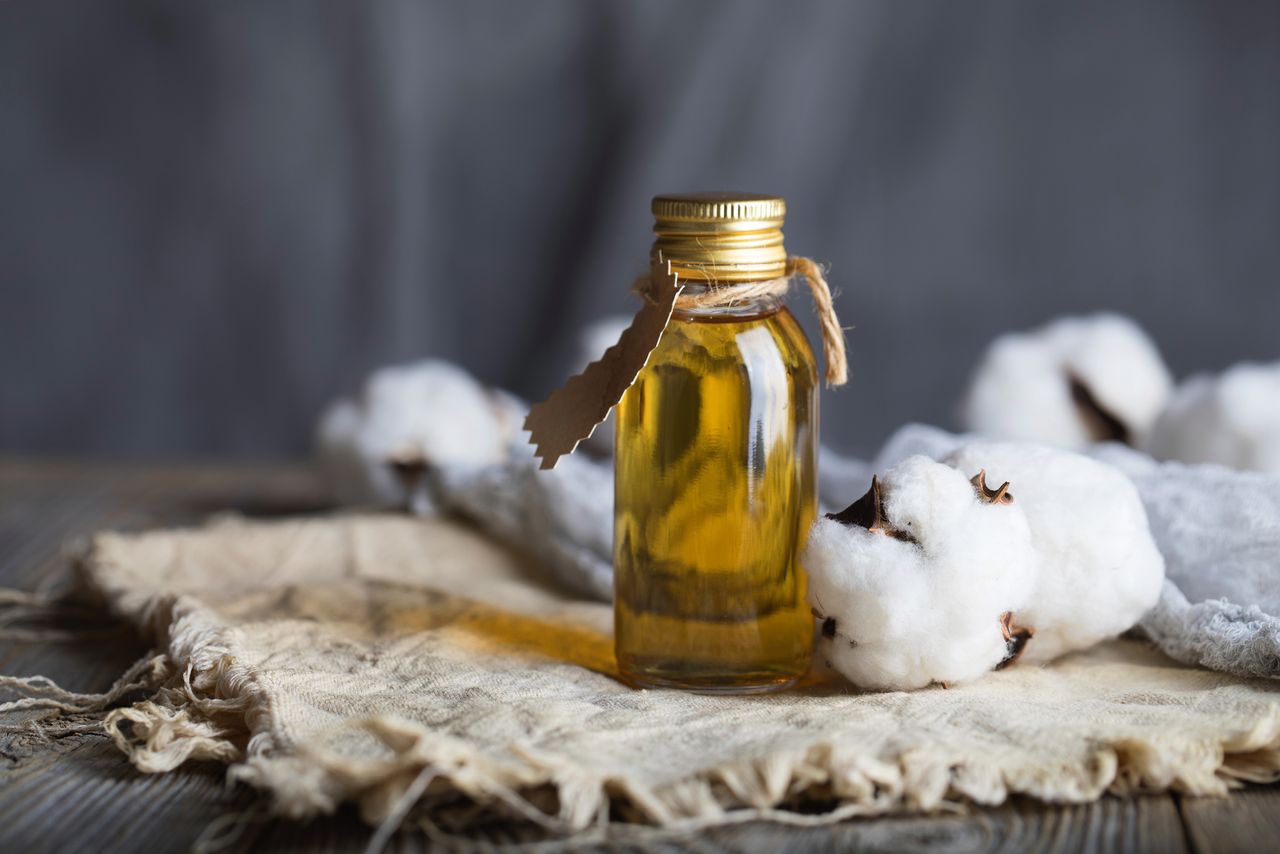
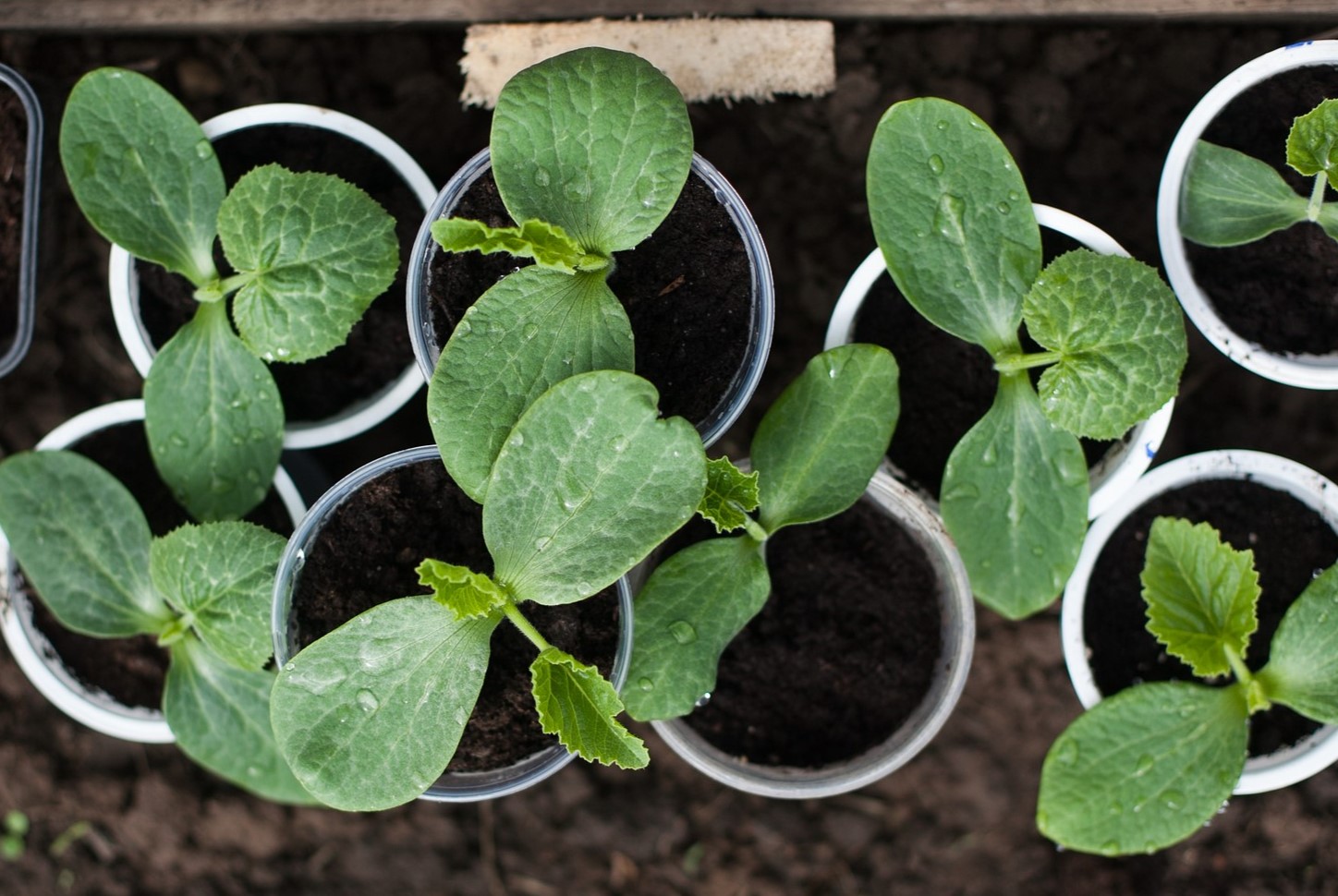
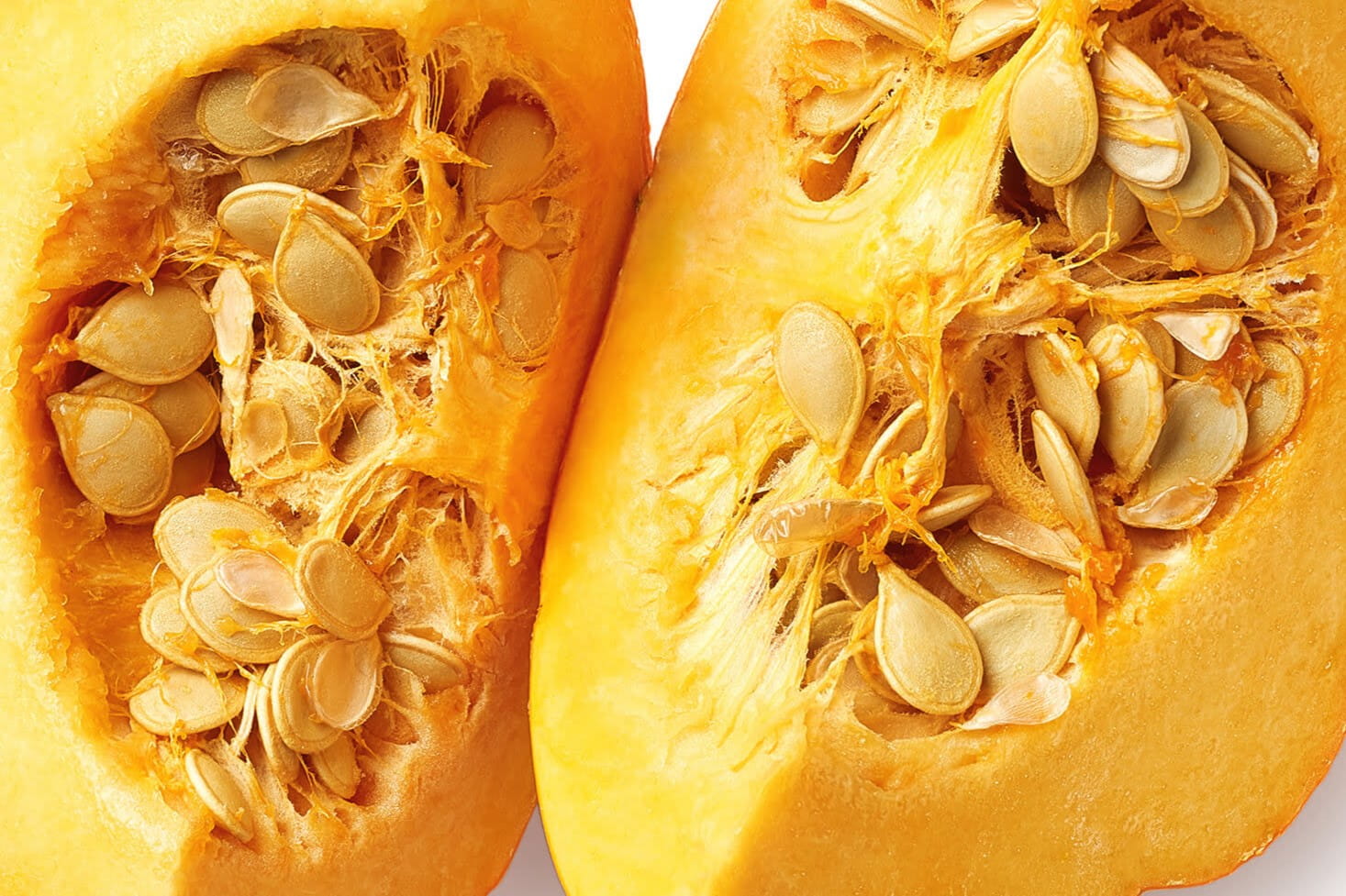
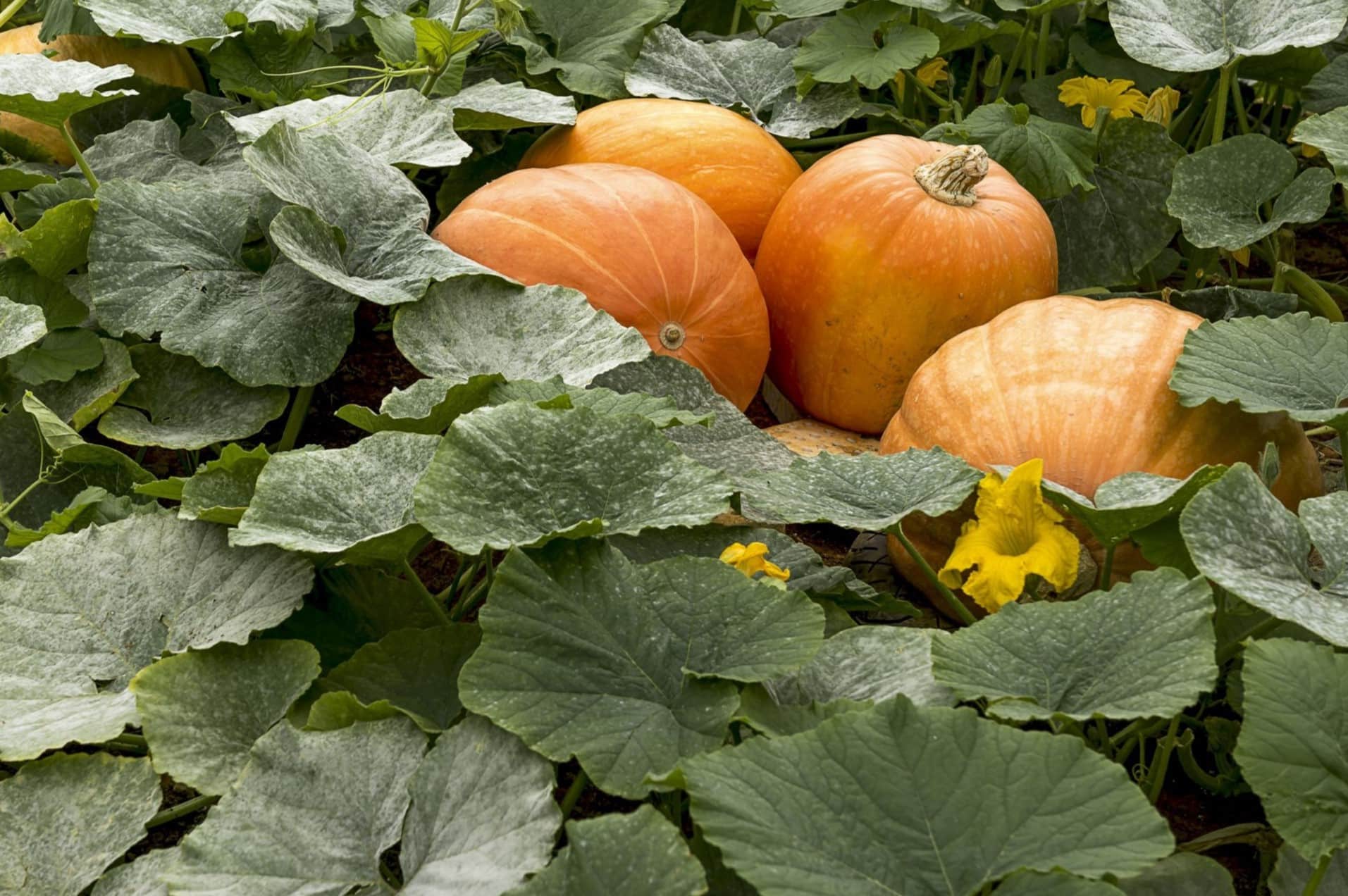
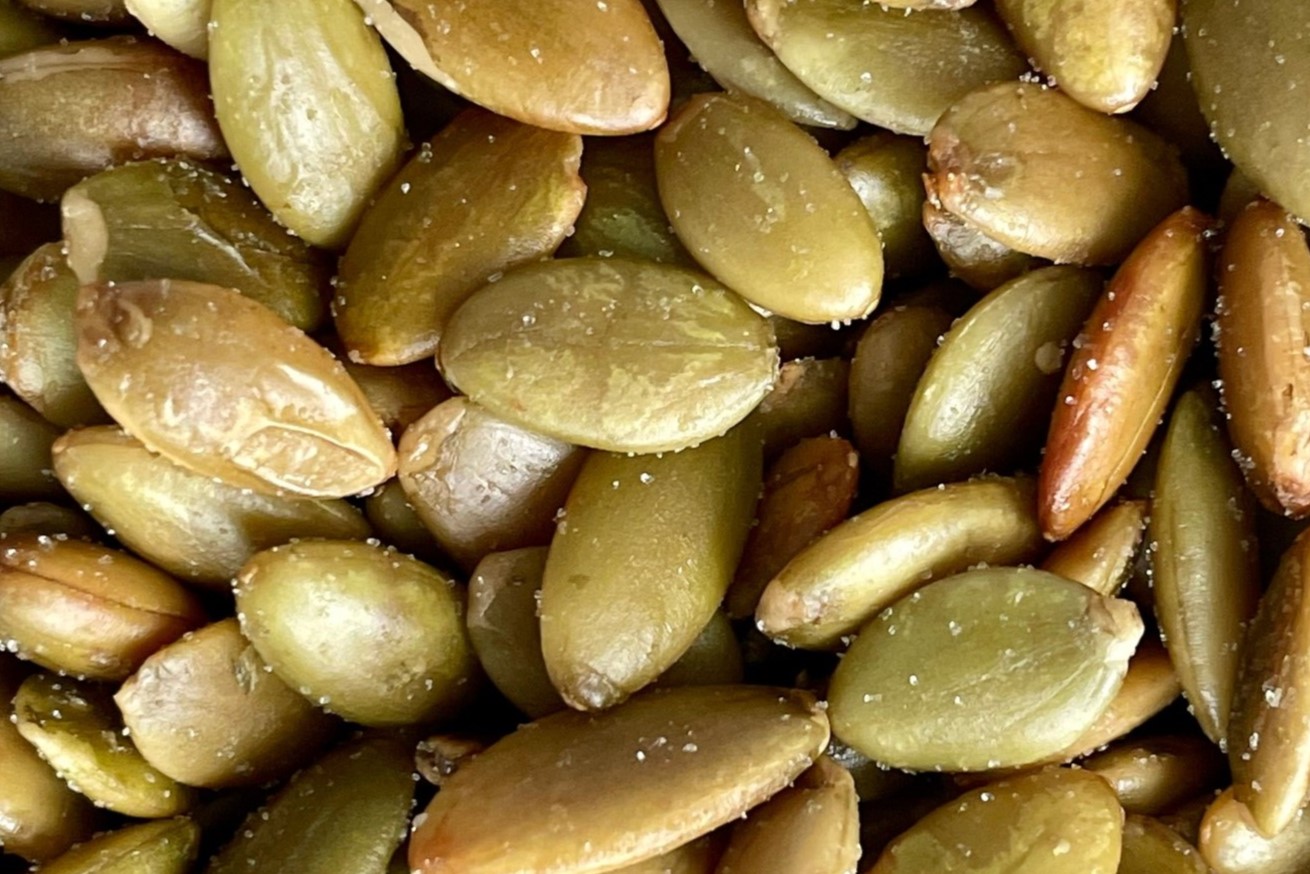
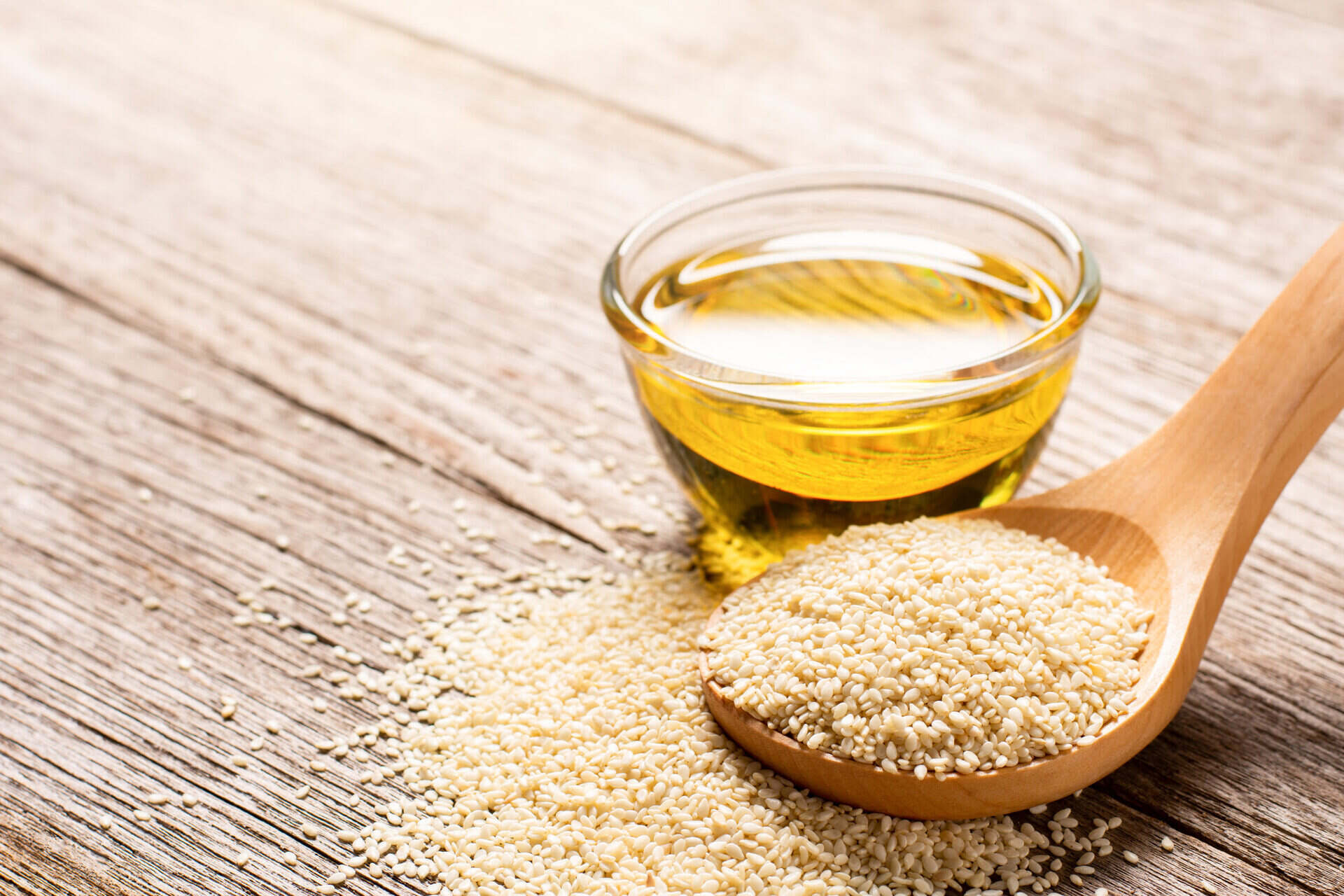
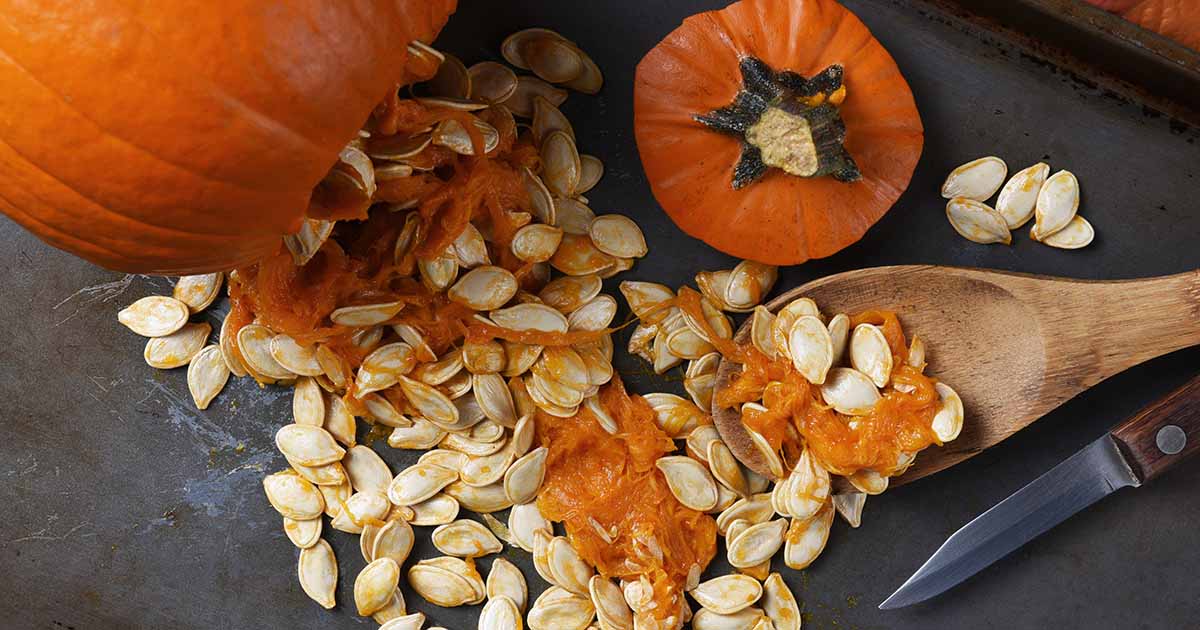

0 thoughts on “What Is Pumpkin Seed Oil”